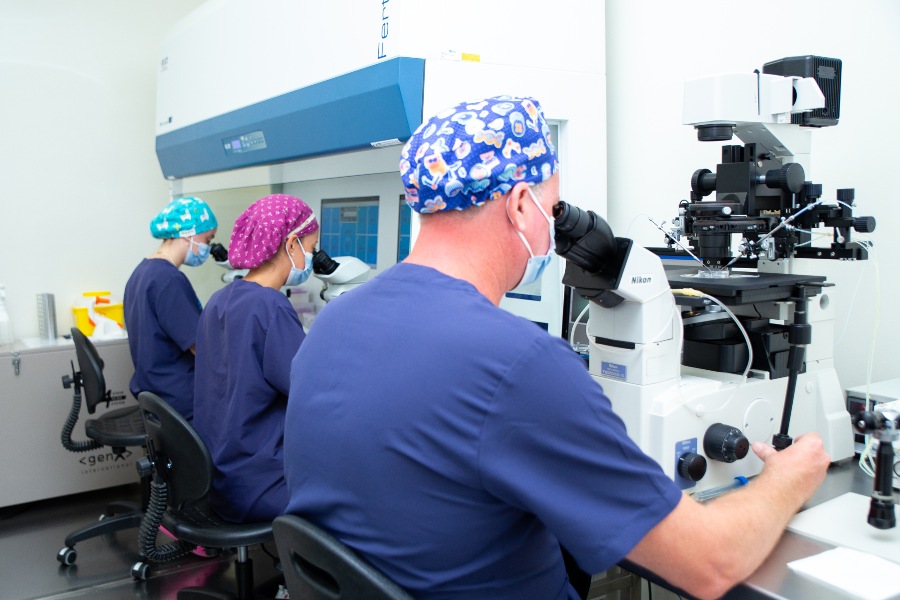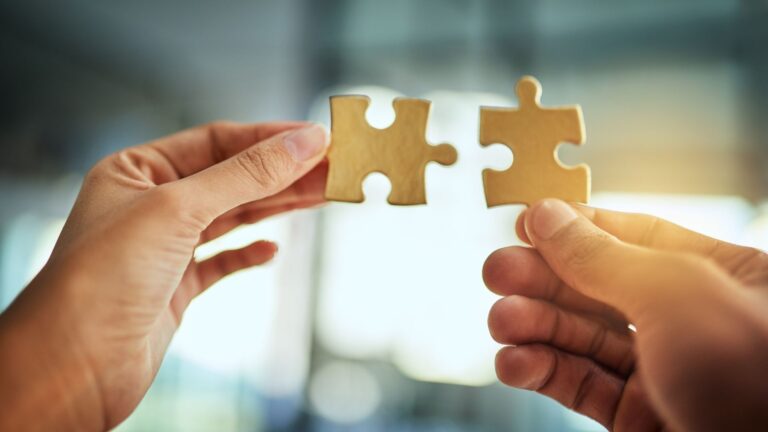Starting the fertility journey with donor eggs requires thorough mental, psychological, and financial readiness. It’s important to acknowledge that choosing IVF treatment with donor eggs can be difficult for any couple. In this interview, we talk to Dr. Verónica Serrano De la Cruz Delgado, a specialist in Gynaecology and Obstetrics and the medical director of the Alicante-based clinic, Fertility and Assisted Reproduction IREMA. Dr. Verónica will explain the egg donor-recipient process using Fenomatch at IREMA and discuss the egg donation treatment available at the clinic.
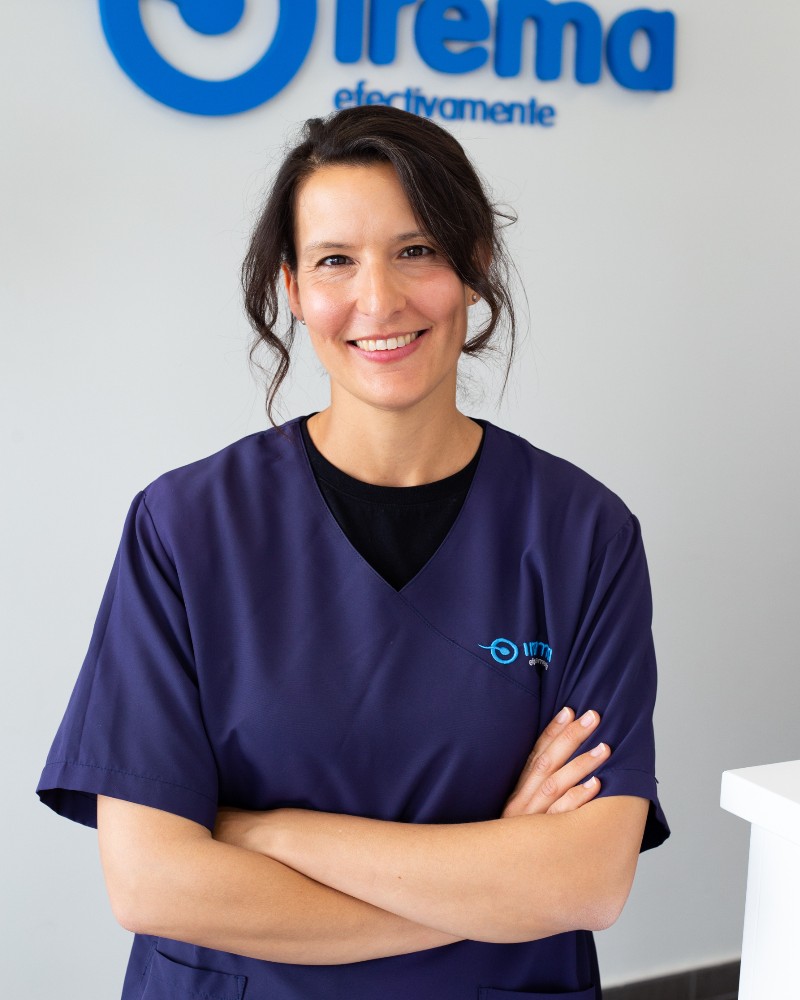
Can you tell us why patients from abroad should consider Spain as their destination for egg donation programs abroad?
Spain is one of the most popular countries for egg donation. Several factors contribute to its popularity, with transparent IVF regulation and a plentiful supply of young, healthy donors at the forefront. The regulatory framework in Spain ensures that the egg donation process adheres to strict standards, providing a sense of security and trust for both donors and recipients. This regulatory oversight encompasses various aspects, including the screening of potential donors. Before being accepted into the donation program, egg donors undergo comprehensive evaluations encompassing psychological, physical, and genetic assessments.
Moreover, Spain benefits from a robust pool of young donors who are typically in their 20s or early 30s, an age range associated with optimal fertility and egg quality. The abundance of youthful donors increases the likelihood of successful fertilization and healthy pregnancies for recipients.
In essence, Spain’s reputation as a leading destination for egg donation is bolstered by its meticulous regulation, rigorous donor screening processes, and the availability of high-quality donors. These factors collectively contribute to the country’s appeal as a hub for individuals and couples seeking assisted reproductive technologies to realize their dreams of parenthood.
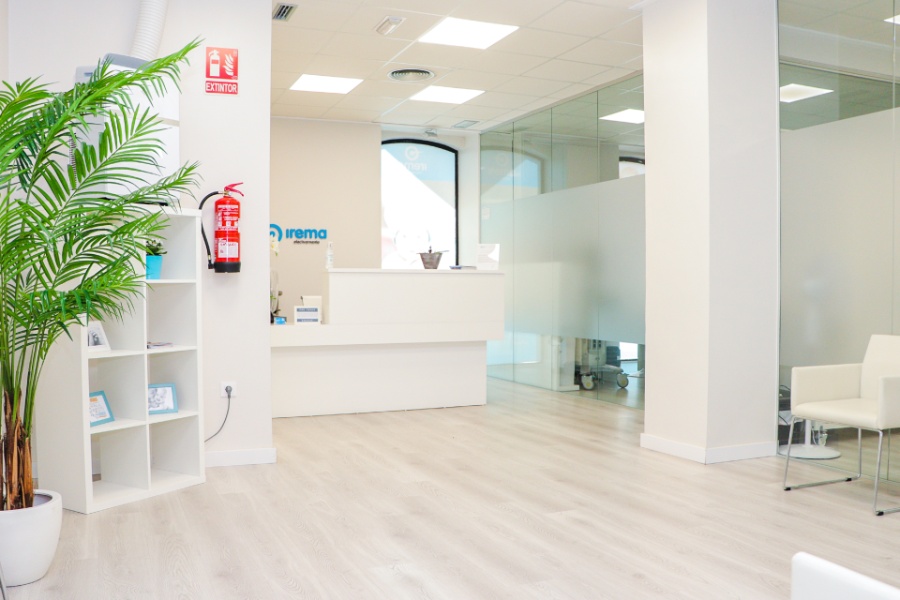
What egg donors are available at IREMA (race/ethnicity, proven fertility, age)?
Mainly Caucasian but we do have other ethnicities, most of them young and with proven fertility. When discussing egg donation, the concept of proven fertility refers to a donor’s demonstrated ability to conceive and carry a pregnancy to term successfully. In the context of egg donation, donors with proven fertility have previously undergone the process of donating eggs and this resulted in successful pregnancies of the recipients.
The term proven fertility underscores the importance of selecting donors who have a track record of producing viable eggs that can lead to successful fertilization and pregnancy. These criteria provide reassurance to donor egg recipients that the oocytes they receive have a higher likelihood of resulting in a successful pregnancy compared to donors who have not yet proven their fertility through prior donations.
While the majority of donors available at IREMA may be Caucasian, we also offer donors from other ethnic backgrounds, catering to the diverse needs of recipients seeking egg donation services.
Do you use your own egg bank or external egg banks at IREMA?
At IREMA we have our own egg bank.
How are IREMA egg donors qualified for the process?
Donors go through interviews where a full medical history is asked, including any genetical disorders of parents and grandparents, they would then go through social and psychological evaluation, the last step would be all clinical examinations, including blood tests, infectious diseases, physical examinations, and genetic tests.
Psychological assessments delve into the donor’s motivations, emotional well-being, and understanding of the donation process. These evaluations help ensure that donors are mentally prepared for the emotional aspects of donation and fully comprehend the implications of their decision.
Physical tests are conducted to assess the donor’s overall health and reproductive fitness. This includes medical examinations, blood tests, and screenings for infectious diseases to mitigate any potential health risks to recipients and offspring. Genetic screenings play a crucial role in identifying hereditary conditions or genetic abnormalities that could be passed on to the offspring. By thoroughly examining the donor’s genetic profile, healthcare professionals can minimize the risk of inherited disorders and enhance the overall success of fertility treatments.
Do you offer fresh and/or frozen oocytes? How the egg donation cycles are organized and managed in terms of synchronization?
We offer both fresh and frozen oocytes. With international patients, we recommend frozen oocytes because it makes the whole process easier and we have very similar chances of success. In case patients prefer to use fresh oocytes, we synchronize cycles mainly using contraceptive pills on both donor and recipient.
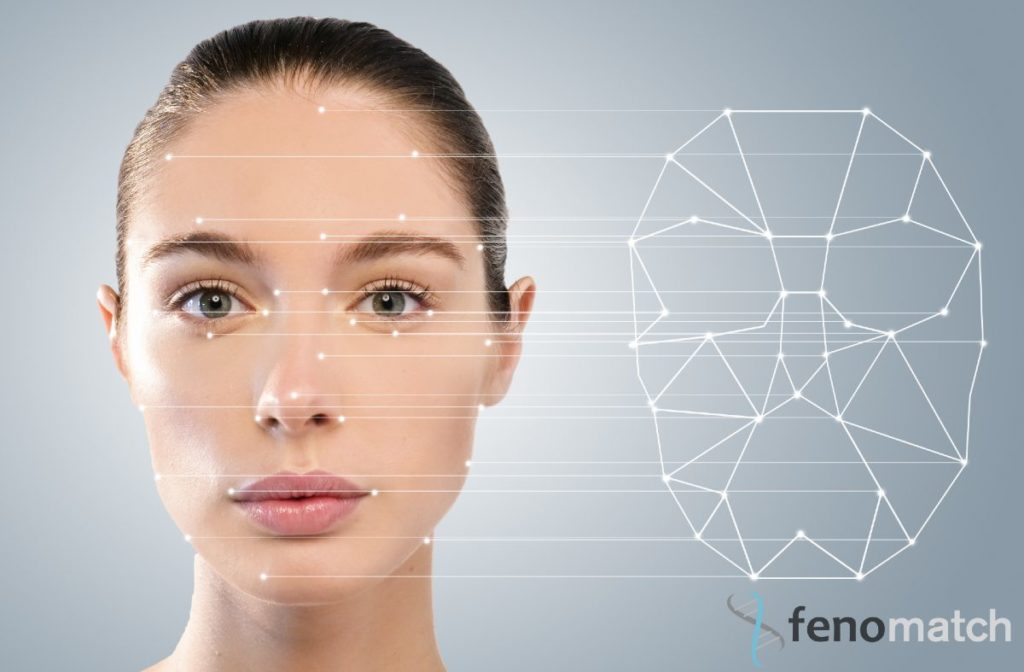
How the egg donor matching with the recipient process is managed? Is it possible to match and “book” the donor before the first visit to the clinic?
Yes, the donor can be ‘booked’ remotely, essentially a phenotypic profile is requested for the patients, we ask for eye colour, hair colour and hair type, height, weight, and blood group. We use Fenomatch software that uses biometrics to find the best match for the patient. We request patients to provide their pictures and these are used by the software giving a score of matching characteristics.
How does Fenomatch work? By combining automated facial analysis with medical criteria, Fenomatch enhances the accuracy of donor-recipient matching. Using advanced facial recognition and machine learning, it analyzes key features to identify donors closely resembling recipient patients, thus improving the chances of successful treatments.
You can read more about Fenomatch here.
What is the average number of visits and time spent at IREMA for patients travelling for IVF with donor eggs from abroad?
When utilizing an egg donor, a minimum of two visits is required. The first visit entails the partner providing a sperm sample, while simultaneously, we conduct a scan on the recipient. The second visit is scheduled for the embryo transfer procedure. Subsequent follow-up scans can be conducted in the recipient’s home country, provided that they can send us high-quality pictures and a detailed report. Additionally, all mandatory tests can be conducted in the patient’s home country and forwarded to us for review.
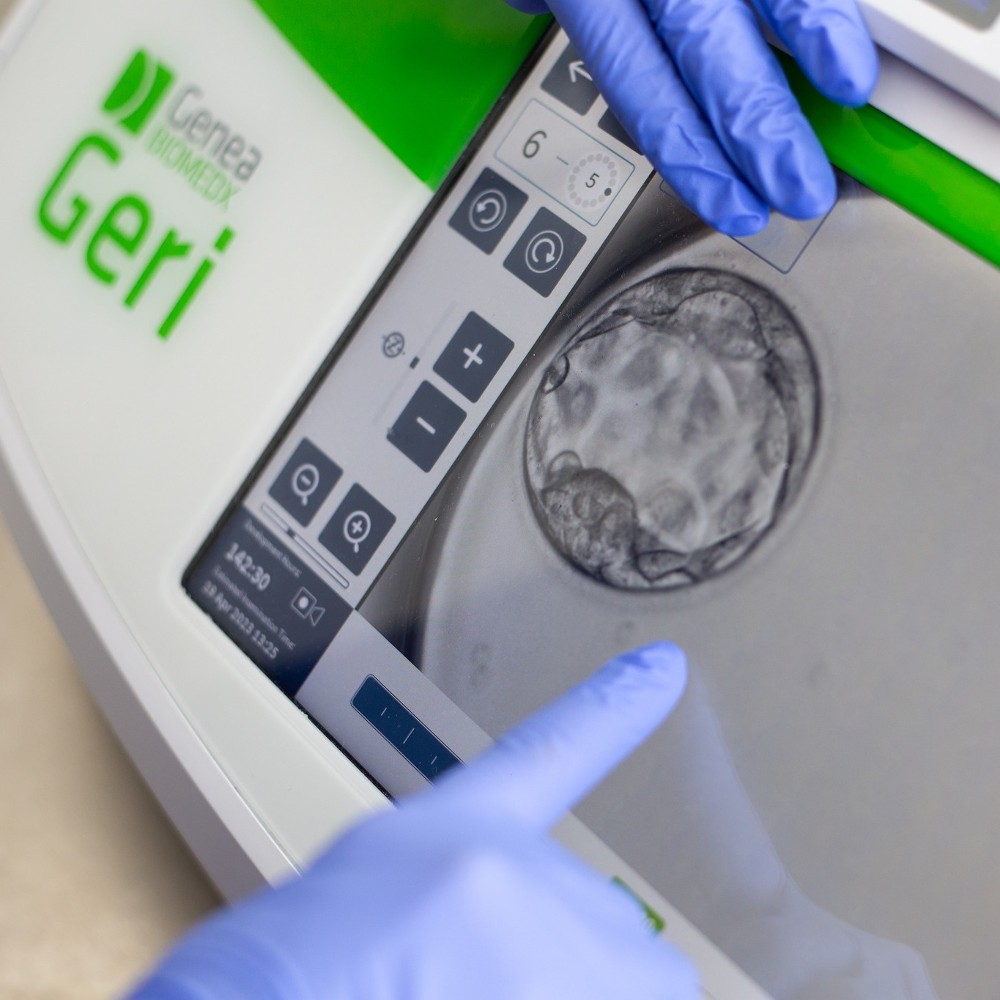
What are important IVF add-ons patients may consider for their egg donation cycle?
In addition to the standard procedures, patients may consider several important IVF add-ons to optimize their egg donation cycle at IREMA. One such add-on is HERES genetic testing for recessive diseases, which is mandated by law when using a donor in Spain. This testing helps identify potential genetic risks and ensures the health and well-being of the future offspring.
Also, sperm selection techniques like Zymot or MACS (Magnetic-Activated Cell Sorting) can enhance the quality of the sperm used for fertilization, thereby improving the chances of successful embryo development.
Another valuable add-on option at IREMA is time-lapse embryo incubation, a cutting-edge technology that allows for continuous monitoring of embryo development without disturbing the embryos. This non-invasive approach provides valuable insights into embryo viability and quality, enabling our clinicians to select the most viable embryos for transfer, ultimately increasing the likelihood of a successful pregnancy for the patient.
If you are curious about the above donor-recipient matching using Fenomatch and wish to know more, reach out to Fertility and Assisted Reproduction IREMA.


